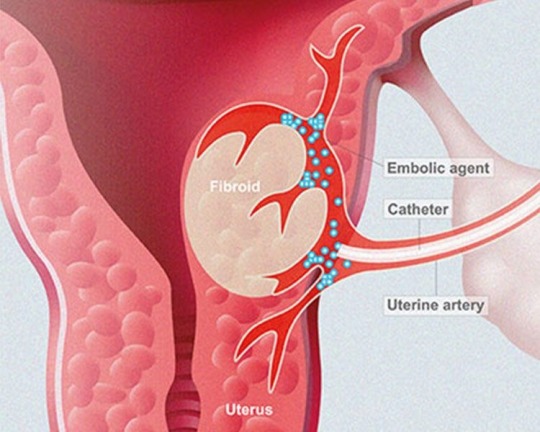#Uterine
Text
hey maveriques and allies!
the 31st may has been declared maverique visibility day a while ago as that was when maverique was first coined.
the 31st may 2024 is the 10-year anniversary of the coining of maverique.
i feel like this might be a great opportunity for us and our allies to do something to increase visibility of and awareness for maveriques.
i already have a vague plan for a maverique episode on my podcast and i will post something on my instagram as well.
if anyone else has ideas about what we can do as a community, hit me up!
it's time for us to finally move past only being featured as an obscure nonbinary identity, together. it's time for us to be known.
#maverique#maverique visibility#lgbt#lgbtq#lgbtqia#maverique pride#actually maverique#maverique community#maverique positivity#aporagender#abinary#uterine#envy#nonbinary#non binary#queer#mogai#trans#transgender#enby#stellarian#unaligned#other aligned#trans visibility#nonbinary visibility#our nonbinary experience#our abinary experience
120 notes
·
View notes
Text

Menses and Heart Center Supportive Herbal Tea
Motherwort
Yarrow
Raspberry Leaf
Milky Oats
Rose Petals
Bai Shao White Peony root
Hawthorn Berry
Rose Hips
Cinnamon, Licorice and Ginger
#p#herbarium#tea blends#emmenagogue#uterine#teas#herbal tea#herbalism#emotional healing#womb wellness#menstruation#pms#menstrual cycle#self healing#sidewalkchemistry
3 notes
·
View notes
Text
i'm utterly(as in uterus) insane
2 notes
·
View notes
Text

SVASTHA EMERGENCY AND MULTI SPECIALITY HOSPITAL
CONTACT: 9044337799
MANDAPETA
#SVASTHA EMERGENCY AND MULTI SPECIALITY HOSPITAL#MANDAPETA#@svastha_hospital#pcos#svasthahospital#hospitals#clinic#doctor#doctors#wellness#health#healthylifestyle#nurse#pharma#pharmacy#dizirina#pharmaceutical#healthcare#mbbs#generalsurgeon#andhrab#antibiotics#kidneystones#premature#birth#uterine#constipation#tummytroubles#obesity#disbiosis
0 notes
Text
youtube
Uterine Fibroid Embolization for Multiple Fibroids | Dr. Sandeep Sharma | IRFACILITIES
In this informative video, Dr. Sandeep Sharma from IRFACILITIES discusses Uterine Fibroid Embolization (UFE) as a treatment option for patients with multiple fibroids. Discover how UFE is performed, its benefits, and why it is considered a minimally invasive alternative to surgery. Learn more about this innovative procedure and how it can relieve uterine fibroids symptoms.
#irfacilities#doctor#health#uterine fibroids#uterine fibroid treatment#uterus#healthcare#dr.sandeep sharma#uterine#Youtube
0 notes
Text
WHAT IS NEW IN CANCER RESEARCH, PART 1.
There are several types of GYN (gynecologic) cancers. There will be articles about each one of them in the coming weeks.
Uterine/endometrial cancer affects an estimated 66,200 people in the United States. Uterine cancer is the fourth most common cancer for women in the United States. Worldwide, an estimated 417,367 people were diagnosed with uterine cancer in 2020.
Immunotherapy is designed to…
View On WordPress
0 notes
Text
Uterine Fibroids: Causes, Symptoms, Solutions
Uterine fibroids, non-cancerous growths in the uterus, affect many women worldwide. The causes of uterine fibroids remain unclear, but hormonal fluctuations, genetics, and certain lifestyle factors may contribute. Symptoms vary from person to person, ranging from pelvic pain and heavy menstrual bleeding to infertility. Fortunately, several treatment options exist, including medication, minimally invasive procedures, and surgery. Consulting with a healthcare provider is crucial for proper diagnosis and tailored treatment plans. By understanding the causes, recognizing symptoms early, and exploring available solutions, women can effectively manage uterine fibroids and improve their quality of life. For More information read the blog carefully
#pregnancy#gynaecology#gynecologist#pregnant#pregnancy fantasy#pregnant women#uterine#uterine fibroids#fibroids#uterine cancer#uterine prolapse#top gynacologist#gynaecologist#gynacology clinic#gynaecologists#gyne
0 notes
Text
Uterine Bleeding Specialist in Alexandria VA

Unusual uterine bleeding can cause concern, particularly when you don’t know the cause. Seeking care quickly is crucial when this occurs outside of your regular menstrual cycle. Here’s how you can find the top uterine bleeding specialist in Alexandria, and what you can expect for diagnosis and treatment.
Abnormal Uterine Bleeding: An Overview
The definition of this condition is bleeding that is unpredictable in amount, timing, and duration. It generally happens outside of your regular menstrual cycle, but it can include bleeding during your cycle that is abnormal.
The causes include:
Hormonal imbalances that typically involve excessive estrogen or insufficient progesterone
Irregular ovulation
Polycystic ovary syndrome (PCOS)
Polyps
Uterine fibroids
Cancer
Risk factors such as age and obesity can increase the likelihood of developing abnormal uterine bleeding.
What Exactly Does a “Regular” Menstrual Cycle Mean?
A typical menstrual cycle is an important aspect of your reproductive health, yet it can manifest differently in individuals. It usually spans from 21 to 35 days, though some women may experience variations outside this range. The menstrual cycle comprises four phases: menstruation, the follicular phase, ovulation, and the luteal phase.
Menstruation, which marks the beginning of the cycle, entails the shedding of the uterine lining. This bleeding usually lasts for two to seven days, with an average blood loss of approximately 30 to 40 milliliters (mL).
The flow’s intensity may vary. It may start lightly, gradually increase, and then diminish. A normal menstrual cycle is characterized by regularity, predictable patterns, minimal discomfort, and consistent flow, all of which typically do not signal abnormal bleeding.
How Is Uterine Bleeding Diagnosed?
An exam by an experienced specialist, a gynecologist, is necessary to determine what’s going on. It’s necessary to rule out serious causes and to plan a course of treatment.
Your visit will begin with a discussion about your symptoms. You’ll be asked questions about your medical background, health conditions, and current medications. Be sure to have that information handy.
If you can fill out patient forms ahead of time, do so. It’s easier to do at home than in a waiting room.
You can expect a pelvic exam and a PAP smear. If needed, your specialist may also recommend any of the following:
Pregnancy test: To rule out pregnancy-related causes or miscarriage
Blood tests: To assess blood clotting and get a complete blood count
Thyroid test: To evaluate thyroid function, which can impact ovary function and bleeding patterns
Hormone levels test: To identify hormone imbalances contributing to abnormal bleeding
Hysteroscopic exam: Examining of the uterine lining for fibroids, polyps, or signs of cancer
Pelvic ultrasound: Visualizing reproductive organs for growths like fibroids or polyps
Sonohysterogram, or saline-infusion sonography: A sensitive imaging technique for identifying abnormal uterine structures
Endometrial biopsy: Collection of tissue samples from the uterine lining to detect cancer or precancerous cells.
How Is Uterine Bleeding Treated?
Fortunately, you have options when it comes to treatment. After a comprehensive exam, you can count on the best uterine bleeding specialist in Alexandria to recommend whatever treatment is suitable for your needs.
Depending on your diagnosis, medications may be recommended. These can include but aren’t limited to birth control, hormone therapy, and nonsteroidal anti-inflammatory drugs. In some cases, surgical intervention may be necessary.
You Can Find an Experience Uterine Bleeding Specialist By Following Simple Steps
Finding the right specialist may take time, but careful consideration is well worth the effort.
It’s a good idea to begin by seeking recommendations from your primary care provider. Friends and family may also provide referrals.
If you have insurance, check with your carrier to see which medical professionals are covered under your plan.
Look for specialists in your area using reputable online sources, such as health directories or medical organization websites. Many hospitals and clinics have directories of their medical staff on their websites.
Online patient reviews and testimonials can also offer insights into the experiences of other patients with specific specialists.
Ensure the specialist is board-certified in gynecology or a related field. You can typically verify their credentials through state medical boards or professional organizations.
What To Expect During Your Consultation With A Uterine Bleeding Specialist
Once you have a short list of potential specialists, schedule consultations with them. This will allow you to meet in person, discuss your concerns, and assess your communication style and expertise. Their approach should align with yours.
During the consultation, ask questions about their experience in treating abnormal uterine bleeding, their approach to diagnosis and treatment, and what treatment options they offer.
Remember, specialists with more experience treating uterine bleeding have encountered a wider range of cases and can offer a broader perspective on treatment options.
Choose a doctor with whom you feel comfortable and trust. Effective communication and a good doctor-patient relationship are essential.
Consider where the specialist practices. Hospitals and medical centers vary in terms of resources and services. If they perform surgical procedures outside of the hospital, vet the facility they use.
Ensure that the specialist accepts your health insurance and that you understand the billing process.
If You’re Searching for the Top Uterine Bleeding Specialist in Alexandria Call Women’s Health Care Specialists Now!
Our skilled providers practice a holistic approach and offer personalized healthcare.
We integrate cutting-edge medical advancements with state-of-the-art technology to provide exceptional care. We believe in building lasting patient relationships, emphasizing education and women’s healthcare research.
Dr. Navita Modi and the team enthusiastically welcome new patients to our practice. If you’re encountering any form of abnormal bleeding, please do not delay treatment. Call 301-812-3400 to book your appointment today.
0 notes
Text
Uterine Artery Embolization in Borivali: A Leap Towards Non-Surgical Treatment of Fibroids

In the heart of Borivali, a suburban area in Mumbai, an advanced medical procedure known as Uterine Artery Embolization (UAE) is gaining prominence as a highly effective, non-surgical treatment option for women suffering from uterine fibroids. This minimally invasive technique has become a beacon of hope for many, offering a less painful and quicker recovery alternative compared to traditional surgical methods.
Uterine fibroids, non-cancerous growths in the uterus, affect a significant number of women during their reproductive years, leading to symptoms like heavy menstrual bleeding, pelvic pain, and in some cases, infertility. While surgery was once considered the standard treatment, the advent of UAE in Borivali's medical landscape has revolutionized patient care.
The procedure involves the insertion of a catheter through the femoral artery in the groin, which is then guided to the uterine arteries supplying blood to the fibroids. Tiny particles are released to block these arteries, causing the fibroids to shrink and symptoms to alleviate over time. The precision of this technique ensures minimal impact on surrounding tissues, highlighting its safety and efficiency.
Borivali's healthcare facilities, equipped with state-of-the-art technology and staffed by skilled interventional radiologists, have made this advanced treatment accessible to a wider audience. The patient-centric approach adopted by these medical centers emphasizes personalized care, ensuring that each woman receives a treatment plan tailored to her specific needs and condition.
The benefits of UAE extend beyond its medical efficacy. The procedure's minimally invasive nature means shorter hospital stays and rapid return to daily activities, making it an attractive option for busy professionals and homemakers alike. Moreover, preserving the uterus opens the door to future pregnancies, a significant consideration for women of childbearing age.
READ MORE
0 notes
Text
Understanding Uterine Cancer: How to Recognize the Warning Signs

In the early stages of uterine cancer, women may experience subtle yet crucial signs. If you notice any of these symptoms, consult a Uterine Cancer Specialist. Abnormal vaginal bleeding (like spotting, heavy periods, or bleeding after menopause), pelvic pain or discomfort, painful urination, a sense of fullness or pressure in the lower abdomen, and changes in urinary habits can all be indicative of uterine cancer.
0 notes
Link
Staring back at doctors who say the symptoms are normal, bleeding through clothes in public, losing big chunks of time to pain, and living with undiagnosed conditions for years–these are experiences I know well. Are they familiar to you?
These experiences are common for millions of people - some will endure life-altering complications because their conditions were not diagnosed quickly. Mental health suffers, relationships suffer, and they are left to battle against debilitating conditions while navigating misinformation and bias inside a stressed healthcare system.We saw a way to help.Carol Johnson from Uterinekind talks with Mark Alyn on this episode of Late Night Health.
0 notes
Link
0 notes
Text

#womenhealth #uterine #tonic by #AgronAyurveda by #agronremedies #nosideeffects #call 8859000627 #orderonline
#womenhealth#uterine#tonic by#AgronAyurveda by#agronremedies#nosideeffects#call 8859000627#orderonline
0 notes
Text

SVASTHA EMERGENCY AND MULTI SPECIALITY HOSPITAL
CONTACT: 9044337799
MANDAPETA
#SVASTHA EMERGENCY AND MULTI SPECIALITY HOSPITAL#MANDAPETA#@svastha_hospital#pcos#svasthahospital#hospitals#clinic#doctor#doctors#wellness#health#healthylifestyle#nurse#pharma#pharmacy#dizirina#pharmaceutical#healthcare#mbbs#generalsurgeon#andhrab#antibiotics#kidneystones#premature#birth#uterine#constipation#tummytroubles#obesity#disbiosis
0 notes
Text

Uterine Fibroid Treatment
Uterine fibroids lead to bleeding and irregular periods which are important menstrual aspects for your overall health. Talk to us today to get rid of uterine fibroids with non-surgical embolization.
Call: 86999-77947
#irfacilities#doctor#uterine#fibroid uterus treatment#fibroid surgery#uterine fibroids#fibroidtreatment#fibroidcare#uterus#Uterine Fibroid Specialists In Mohali#Uterine Artery Embolization#Fibroid Artery Embolization#Laparoscopic Uterine Fibroids Treatment
0 notes
Photo

Get the Best Hospital uterine fibroids treatment. Uterine fibroids are frequently found incidentally during a routine pelvic exam. Sunrise Hospital provides fibroids treatment to women. Make sure that you understand everything your doctor tells you.
Best hospital for uterine fibroids | Uterine Treatment
1 note
·
View note